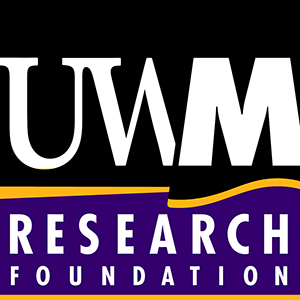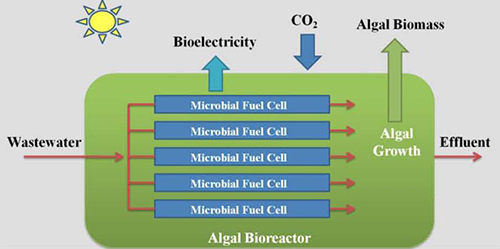
OTT1265
Applications
Wastewater treatment, environmental protection, energy conservation
Target Problems
An ongoing challenge to sustainability is developing improved wastewater management with reduced energy demands and increased energy recovery from waste.
Key Benefits
- Dual use to produce bioelectricity and biomass simultaneously.
- Low energy consumption through use of MFcs and algal bioreactors to process and treat waste water.
- Higher yields are produced while using for bioenergy over other power alternatives.
- Efficient waste removal of both organic wastes and nutrients from wastewater treatment facilities using only one method.
Technology
In this novel system, wastewater is fed into the microbial fuel cells (MFCs) where organic contaminants are converted into bioelectricity; the remaining nutrients are then discharged into an algal bioreactor for algal growth, which strips nutrients out of the water before the treated effluent is released for final treatment (e.g., disinfection). The two treatment processes are cooperatively linked for the same purpose of treating wastewater, with two different bioenergy products: bioelectricity from the MFCs, and algal biomass for biofuels production. Overall, the system hopes to combine previous methods of wastewater removal processes to achieve the most energy efficient method possible.
Intellectual Property
Inventor
Dr. Zhen (Jason) He, former Assistant Professor at the University of Wisconsin-Milwaukee
Please contact our office to share your business’ needs and learn more.


